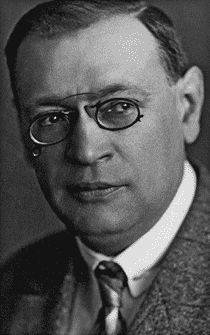Arkady Averchenko (Arkady Averchenko)

Author, Editor. One of Russia’s most popular satirists in the years before the 1917 Revolution. In his hundreds of short stories he used farcical situations and grotesque characters to make pungent observations about urban middle class life of his era. Arkady Timofeevich Averchenko was born in Sevastapol, Crimea, the son of an impoverished merchant. He was educated mostly at home because of poor eyesight and his teen years were spent working menial jobs. In 1900 he moved to Kharkov, where he launched his writing career, and arrived in St. Petersburg in 1908. That year he joined the staff of the fading journal “The Dragonfly” and helped reorganize it as “The Satiricon”, becoming its editor-in-chief in 1913; under his leadership it became Russia’s leading humor magazine. His first collection of “Satiricon” stories, “Cheerful Oysters” (1910), went through 23 editions and earned Averchenko the sobriquet “The King of Laughter”. Among his other books are “Stories (Humorous)” (1910), “The Bunny On the Wall” (1911), “Circles in the Water” (1912), “Stories for the Convalescent” (1913), and “The Gold-Plated Pill” (1916). Many of his tales were adapted into one-act plays which extended his fame into less literate areas of the country. He also wrote theatre and art criticism. Frequently under fire from the Czar’s censors, he welcomed the February Revolution of 1917 but was appalled when Lenin seized power in October. In August 1918 “The Satiricon” was banned as seditious and Averchenko returned to Sevastapol, where he wrote propaganda pieces for the opposing White Guard. By November 1920 the advance of the Red Army had forced him to flee to Constantinople (now Istabul), and he settled in Prague in 1922. In his late writings humor took a back seat to his hectoring rage at what the communists had done to his homeland, particularly in the book “A Dozen Knives in the Back of the Revolution” (1921), though even the Soviet newspaper Pravda conceded he was “highly talented”. He died at 43, from complications following eye surgery. The faux-rhetorical style of Averchenko’s best work influenced such later Russian satirists as Mikhail Zoshchenko and the team of Ilf and Petrov. (bio by: Bobb Edwards)
Born
- March, 27, 1881
Died
- March, 03, 1925
Cemetery
- Olsanske hrbitovy

